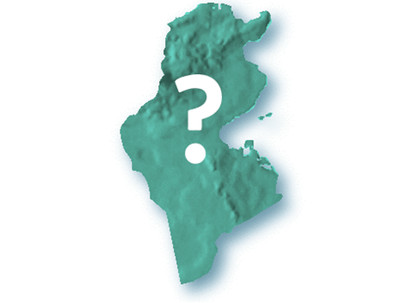年度國家獎
Hope springs
希望在跳躍
This has been a bad year for nation-states. But some—and one in particular—deserve congratulations
今年對于國家來說并不好,但是一些國家,特別是有一個國家,還是值得去祝賀的。
EVEN with the best will in the world—which, in 2014, has not been conspicuously forthcoming—the outgoing year could not be regarded as one of the planet's finest. Between war, disease and insurrection, the past 12 months have often seemed a gory relay for the apocalypse's four horsemen. But look closely, and amid the misery there have been reasons for optimism. Whether by dint of boldness or stoicism, there are numerous candidates for the coveted title of The Economist's country of the year.
即使是2014年世界上最好的一面還沒有顯出來,即將過去的一年也不會是最美好的年份之一。在戰爭、疾病和暴亂之中,過去的12個月似乎往往是大災難接踵而至。但是仔細看,在痛苦之中也有樂觀的理由。無論是憑借勇敢還是堅忍,都會有許多國家能夠列入人人向往的《經濟學人》年度國家獎項候選名單當中。

In fact 2014 was a bad year for the very concept of countries, as well as for lots of individual nations. The pre-modern marauders of Islamic State (IS) rampaged between Iraq and Syria, and Russian forces dismembered Ukraine, as if borders were elastic lines rather than fixed frontiers. Boko Haram traduced the sovereignty of Nigeria while the Shabab convulsed the Horn of Africa. South Sudan, a brand new country born only three years ago, imploded in civil war.
事實上,就整個國家概念本身以及許多單個國家而言,2014年并不美好。近代前的伊斯蘭國家掠奪者在伊拉克和敘利亞之間猖狂肆虐,俄羅斯強迫分割烏克蘭,仿佛邊界就像有彈性的線條而非固定的邊際線。博科圣地詆毀尼日利亞的主權,青年黨(索馬里的一個黨派-譯者注)讓非洲之角動蕩不安。僅僅三年前建立的全新國家南蘇丹爆發內戰。
But other territories have bravely resisted disintegration. The Marshall Islands may be sinking but, by championing the struggle against climate change, they are at least going down fighting. The peshmerga of Iraqi Kurdistan—not yet a country but perhaps on its way to that status—repelled the jihadists of IS and may have saved Baghdad. In a different, democratic kind of confrontation, but in its way an equally vigorous one, the people of Scotland wisely voted not to end three centuries of union and stayed in the United Kingdom. That would make Scotland a good candidate for our title, except that lauding it as a country because it chose not to become one might seem gallingly contrarian.
但是其他國家勇敢地抵御了分裂。馬紹爾群島可能在下沉,但是這個國家勇敢應對氣候變化,至少他們在行動。來自伊拉克庫爾德斯坦(目前還不是一個國家,但是正在努力成為一個國家)的勇士們反對伊斯蘭國家的極端分子,很可能挽救了巴格達。而用一種不同的,民主的方式,但是同樣是大力度的方式對抗分裂的例子就是蘇格蘭人民拒絕斷絕與聯合王國300年的聯姻,選擇留在英國。這讓蘇格蘭成為獲得該獎項的絕佳候選,但是就因為蘇格蘭人民選擇不獨立出來而稱其為一個國家可能與眾人意愿背道而馳。
Disaster has been averted elsewhere, too. Senegal responded with alacrity to its Ebola outbreak (as indeed did Nigeria). Afghanistan remains one of the world's bleakest places, but it looks a little less bleak after a peaceful handover of power: the Taliban are still slaughtering people, but politically they are a busted flush. Tiny Lebanon deserves a mention for absorbing hundreds of thousands of Syrian refugees, plus the machinations of malignant outsiders, and continuing, just about, to function. If the peace process between Colombia's government and its FARC guerrillas succeeds, it will be a favorite for our award in 2015.
在其他地方,災難也得到了避免。塞內加爾非常欣然地應對了埃博拉疫情(尼日利亞當然也是如此。)阿富汗一直是世界上最沒有希望的國家之一,但是在權力和平交接之后就變得不那么沒有希望了。塔利班仍然在屠殺人民,但是從政治上看他們充滿熱血。黎巴嫩這個小國值得一提,因為它收養了成百上千名敘利亞難民,包容了惡毒的局外人使出的陰謀詭計行為,而且繼續行使其權力。如果哥倫比亞政府及其革命武裝力量游擊隊員的和平進程能夠成功,那么哥倫比亞將會成為2015年年度國家獎的熱門人選。
On our home turf of economics there have been some standout performances. Ireland and Iceland have both pulled clear of trouble, showing that democracies can, after all, implement painful decisions when they must. Unusually among euro-zone countries, Estonia has kept its nose clean. Narendra Modi's victory in India may come to be seen as the moment the world's biggest democracy began to realize its vast potential. We may find that out in 2015, too.
就本刊所講的經濟學而言,也有一些擁有突出表現的國家。愛爾蘭和冰島都走出了困境,表明民主畢竟在必要的時候會有助于實現痛苦的決定。在歐元區國家當中有不同尋常的表現,愛沙尼亞按套路出牌,納倫德拉·莫迪在印度選舉中獲勝,這一刻可能意味著世界上最大的民主國開始顯現出巨大的潛力。我們也會在2015年拭目以待。
And the winner is…
那么獲獎者是…
Yet there is more to life and to statecraft than guns and GDP: witness our choice in 2013 of Uruguay, for its liberal stance on drugs and gay marriage. (Uruguay has had another strong year, notching up a model election, impressive growth and a grown-up welcome to six internees from Guantánamo.) The two top contenders for our 2014 title earned their kudos for displays of political maturity that, like most great achievements, involved both leaders and their people.
但是民生和管理國家的方式比軍事和GDP更能作為評判的標準。2013年的獲獎者是烏拉圭,原因是該國對毒品和同性婚姻持開明的立場。(烏拉圭今年又是強勢的一年,創建了一個模擬選舉,增長讓人矚目,歡迎了來自關塔那摩的6名政治犯出獄。)2014年度國家獎的前兩名競爭者展現出了政治上的成熟,和其他的成就一樣,這種成熟涉及領導和人民。
The runner-up (just) is Indonesia, the world's largest Muslim nation, where a modern politician bested the old, militaristic regime in a fair if rancorous vote. The new, reforming president, Joko Widodo, has begun to nudge his country beyond its crossroads and towards prosperity.
亞軍得主(僅僅是亞軍)是世界上最大的穆斯林國家印度尼西亞。一位現代政治家以充滿敵意但是很公平的投票打敗了陳舊的軍國主義體制。崇尚改革的新任總統佐科·維多多開始將自己的國家跨出十字路口,向著繁榮前進。
Our winner is a much smaller nation, but we think symbolism matters more than size. The idealism engendered by the Arab spring has mostly sunk in bloodshed and extremism, with a shining exception: Tunisia, which in 2014 adopted a new, enlightened constitution and held both parliamentary and presidential polls (a run-off is due in the latter on December 21st). Its economy is struggling and its polity is fragile; but Tunisia's pragmatism and moderation have nurtured hope in a wretched region and a troubled world. Mabrouk, Tunisia!
而今年的年度國家獎得主面積要小得多,但是我們認為象征意義比面積更重要。源自阿拉伯之春的理想主義大多已經淹沒在屠殺與血腥之中,但是有一個國家是例外,而且有著閃光點,這個國家就是突尼斯。2014年,突尼斯采納了一部具有啟發意義的新憲法,并進行了議會和總統選舉(后者會在12月21日進行附加選舉。)該國的經濟在掙扎,政治組織脆弱,但是突尼斯的實干主義精神和溫和立場為這個悲慘的地區和不安的世界孕育希望。祝賀突尼斯!譯者:梁辰












